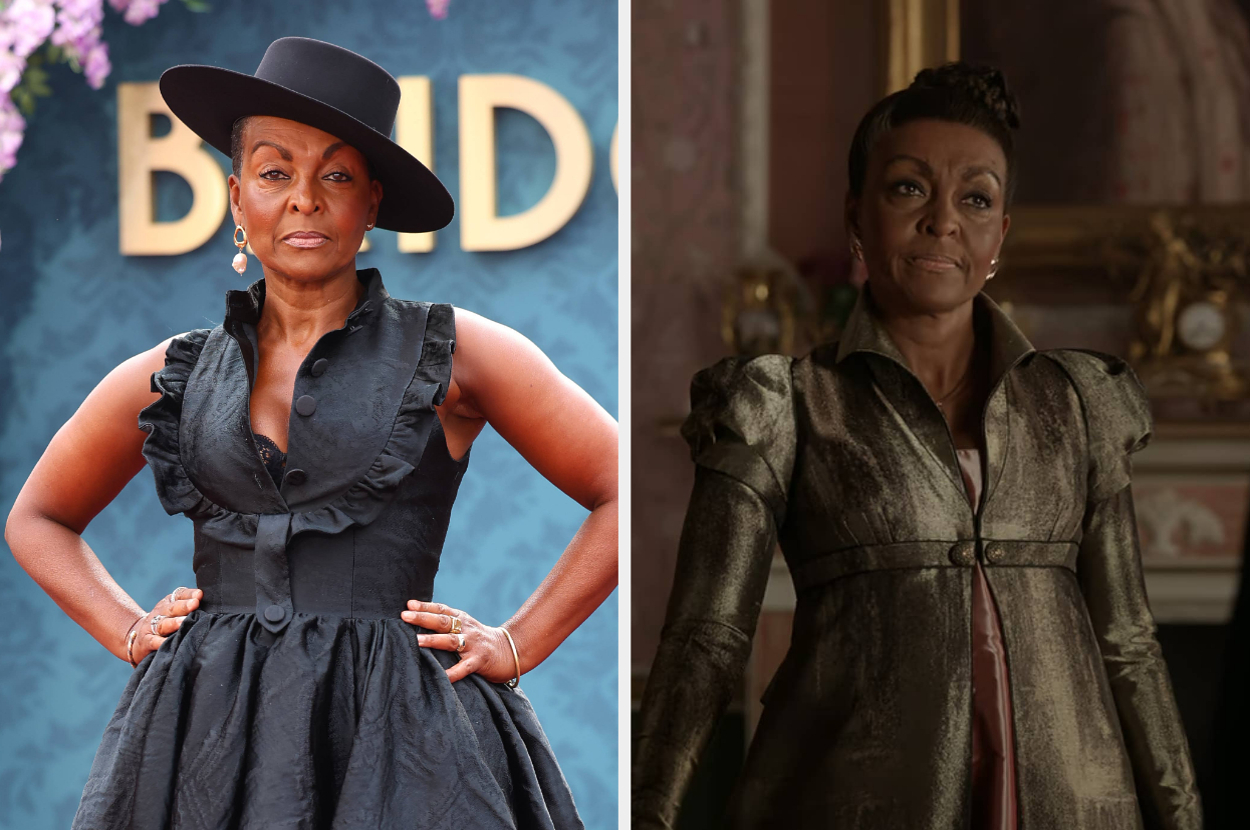"BRIDGERTON" STAR ADJOA ANDOH SPOKE ABOUT HOW BLACK ACTORS STILL AREN'T LIT PROPERLY WHILE MAKING THE SHOW
Adjoa Andoh spoke about the ongoing failures of movie and TV sets — including Bridgerton — to light Black skin properly.
![]()
The actor has played Lady Danbury in all three seasons of Bridgerton and its spinoff, Queen Charlotte. She has a lengthy history in theatre and has appeared in movies like Invictus and Brotherhood.
![]()
In an interview on the Stirring it Up podcast published Jul. 17, Adjoa was asked whether or not she feels "powerful" in her career — to which she replied, "No."
![]()
Adjoa explained, "The continuing conversation about lighting Black skin, on every show, nothing's changed. They’re getting better, so I suppose I feel powerful in that I will now go, ‘Am I blonde?’"
![]()
"I hate doing it because a bit of me's like, 'I don't want to do it, I don't want to make a fuss,'" she continued. "I want to stay in character. I just want to come on and be Lady Danbury and do what she’s got to do and be totally engaged with that.”
![]()
“This is a big thing for me. When people say we’re chippy or we’re being militant or we’re all that stuff, what I want to say is, ‘I’m just a human being and I just want to do the gift that I’m blessed with. I want to do it in a free way, like I see many other people do it.' I'm not asking for any special revelation," she continued.
![]()
On considering racial bias when auditioning for roles, she added, "It's very tiring, it's very distracting, that's not my shit. I don't want to think about it. I just want to get the job because I'm great, or not get the job because I'm shit."
![]()
The history of racial bias in photography and videography is long. As Anita Bhagwandas notes in her book Ugly, film would be "sent to a lab to be developed and a photo of a white woman with brown hair called Shirley — marked 'normal' — was used as the control for how colors should be adjusted." It wasn't until complaints from furniture and chocolate companies in the '70s over how their shades of brown were depicted that this standard slowly began to change.
![]()
Even with the help of AI and digital cameras, bias still continues. “Exposure systems on cameras have always been weighted towards providing a pleasing exposure with lighter skin tones," professional photographer Nigel Atherton told Wired. "Modern digital cameras and phones using AI are more sophisticated, but I find they still can't entirely be trusted when photographing darker-skinned subjects.” Throw in the lack of representation when teaching people how to light subjects, and the problem very much persists.
![]()
You can listen to the full interview with Adjoa here.
2024-07-22T15:22:39Z dg43tfdfdgfd
